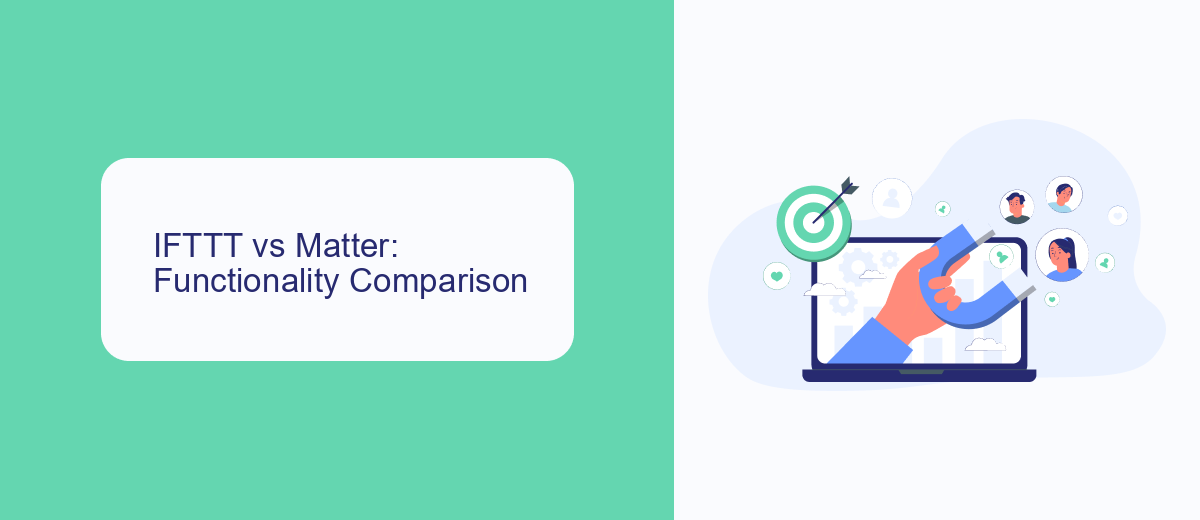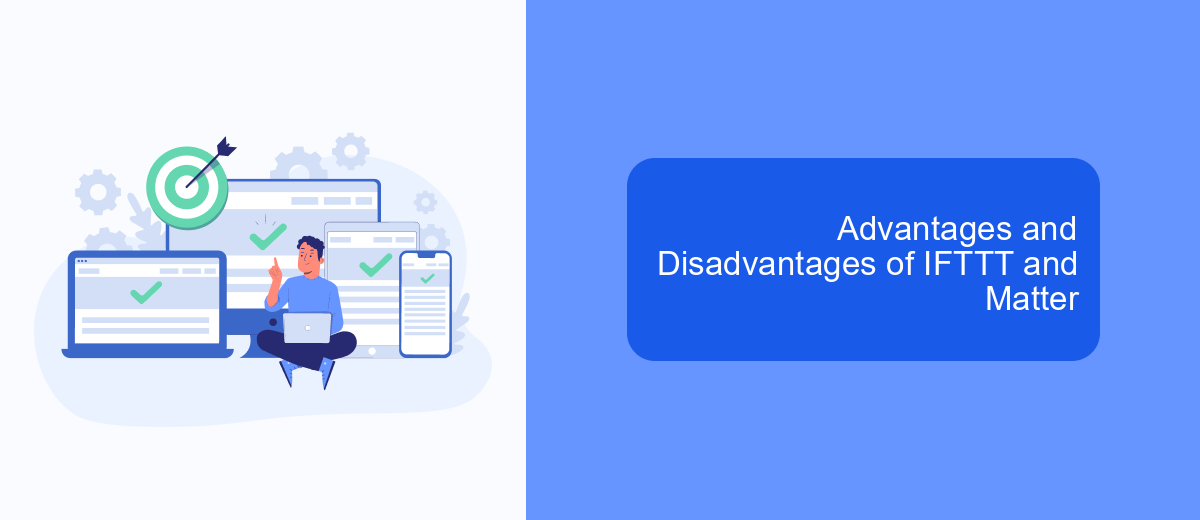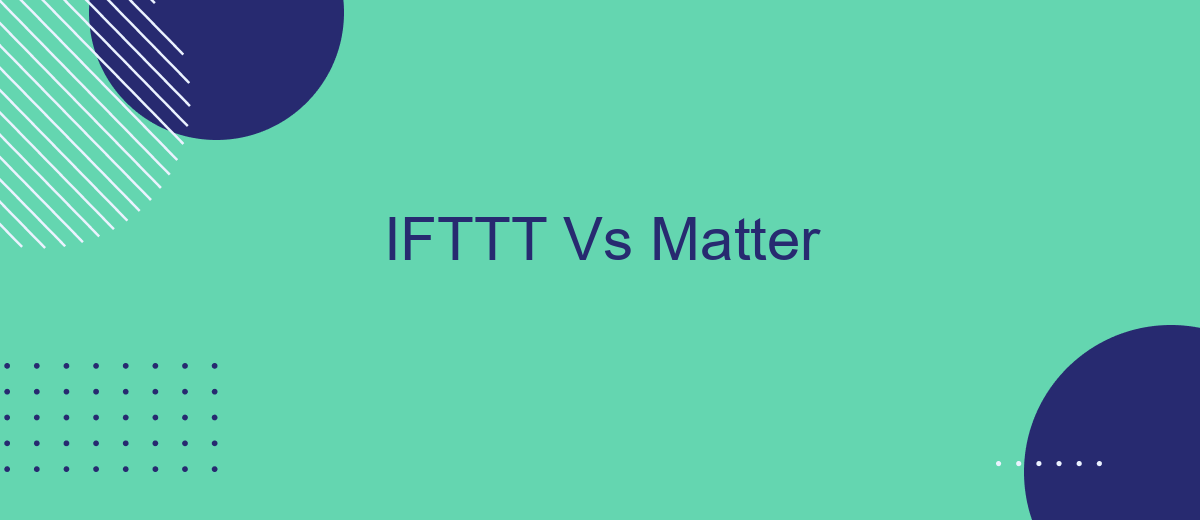In the rapidly evolving world of smart home technology, two names frequently emerge as game-changers: IFTTT and Matter. While IFTTT (If This Then That) offers a versatile platform for connecting various apps and devices, Matter aims to establish a unified standard for seamless interoperability. This article delves into the strengths and weaknesses of each, helping you decide which is best suited for your smart home needs.
Introduction
In the rapidly evolving world of smart home technology, choosing the right platform for automation and integration is crucial. Two prominent contenders in this space are IFTTT (If This Then That) and Matter. Each offers unique features and capabilities that cater to different user needs and preferences.
- IFTTT: A versatile web-based service that enables users to create conditional statements, known as applets, to automate various tasks and integrate multiple services.
- Matter: A new, open-source standard developed by the Connectivity Standards Alliance (CSA) aimed at ensuring seamless interoperability between smart home devices from different manufacturers.
Both IFTTT and Matter aim to simplify the smart home experience, but they approach the problem from different angles. While IFTTT focuses on creating flexible and customizable automations across a wide range of services, Matter emphasizes universal compatibility and ease of use. For those looking to streamline their integrations, services like SaveMyLeads can further enhance the automation process, providing a bridge between various platforms and tools.
IFTTT vs Matter: Functionality Comparison

IFTTT (If This Then That) and Matter are both powerful tools in the smart home ecosystem, but they serve different purposes. IFTTT is a web-based service that allows users to create chains of simple conditional statements, called applets, which trigger actions based on changes in other web services. This makes IFTTT highly versatile, supporting a wide range of devices and services. Users can easily set up integrations without needing technical expertise, and platforms like SaveMyLeads further simplify the process by automating the creation and management of these integrations.
On the other hand, Matter is a new standard for smart home devices designed to ensure interoperability between different brands and ecosystems. Unlike IFTTT, which focuses on creating automated workflows, Matter aims to provide a unified and secure platform for smart devices to communicate seamlessly. This means that devices certified with Matter can work together out of the box, offering a more cohesive user experience. While IFTTT excels in flexibility and custom automation, Matter focuses on reliability and ease of use in a multi-device environment.
IFTTT vs Matter: Connectivity and Compatibility

When comparing IFTTT and Matter in terms of connectivity and compatibility, it's essential to recognize their distinct approaches. IFTTT (If This Then That) is a cloud-based service that connects various apps and devices through applets, enabling automation without requiring users to have in-depth technical knowledge. Matter, on the other hand, is an open-source connectivity standard designed to unify smart home devices, ensuring they work seamlessly across different ecosystems.
- IFTTT: Uses cloud-based integrations to connect services and devices.
- Matter: Employs a local network approach, enhancing security and reducing latency.
- IFTTT: Supports a wide range of apps and devices but relies on internet connectivity.
- Matter: Focuses on interoperability among smart home devices from various manufacturers.
Both platforms aim to simplify the user experience but cater to different needs. IFTTT is ideal for users looking for a straightforward way to automate tasks across numerous online services. Meanwhile, Matter is geared towards creating a more cohesive and secure smart home environment. For those seeking to streamline their integrations, services like SaveMyLeads can offer additional support, making it easier to connect various platforms and automate workflows efficiently.
Advantages and Disadvantages of IFTTT and Matter

IFTTT (If This Then That) and Matter are two popular platforms in the realm of smart home automation and IoT. IFTTT is known for its simplicity and wide range of integrations, allowing users to create custom automation scripts with ease. Matter, on the other hand, is an emerging standard that aims to unify smart home devices, ensuring they work seamlessly across different ecosystems.
While IFTTT excels in user-friendliness and extensive third-party support, it may lack the robustness and security features that Matter promises. Matter, backed by major tech companies, is designed to offer a more secure and reliable framework for smart home devices, but it is still in its early stages and may not support as many devices as IFTTT currently does.
- IFTTT Advantages: Easy to use, extensive integrations, flexible automation.
- IFTTT Disadvantages: Limited security, potential reliability issues.
- Matter Advantages: Enhanced security, cross-ecosystem compatibility, backed by major tech companies.
- Matter Disadvantages: Limited device support, still in development.
For those looking to streamline their automation processes, services like SaveMyLeads can be invaluable. SaveMyLeads allows users to easily set up integrations between various platforms, enhancing the capabilities of both IFTTT and Matter. By leveraging such services, users can create more sophisticated and reliable automation setups.
Use Cases and Examples
When comparing IFTTT and Matter, their use cases and examples highlight the unique strengths of each platform. IFTTT excels in its user-friendly approach to creating simple yet powerful automation across various apps and devices. For instance, you can set up an IFTTT applet to automatically save email attachments to Google Drive or turn on your smart lights when you arrive home. The platform's versatility makes it a go-to choice for personal productivity and smart home enthusiasts looking to streamline everyday tasks.
Matter, on the other hand, focuses on interoperability among smart home devices, ensuring they work seamlessly together regardless of the brand. For example, a Matter-enabled system can allow a smart thermostat from one manufacturer to communicate with a smart lock from another, creating a cohesive and integrated smart home experience. Services like SaveMyLeads can further enhance these integrations by automating lead management processes, thus bridging the gap between different platforms and ensuring a smooth flow of information. This makes Matter ideal for users seeking a more robust and interconnected smart home ecosystem.
FAQ
What is the primary difference between IFTTT and Matter?
Can I use IFTTT with Matter-compatible devices?
Which is better for smart home automation, IFTTT or Matter?
How does Matter improve the smart home experience compared to IFTTT?
Can I integrate both IFTTT and Matter in one smart home setup?
Would you like your employees to receive real-time data on new Facebook leads, and automatically send a welcome email or SMS to users who have responded to your social media ad? All this and more can be implemented using the SaveMyLeads system. Connect the necessary services to your Facebook advertising account and automate data transfer and routine work. Let your employees focus on what really matters, rather than wasting time manually transferring data or sending out template emails.
